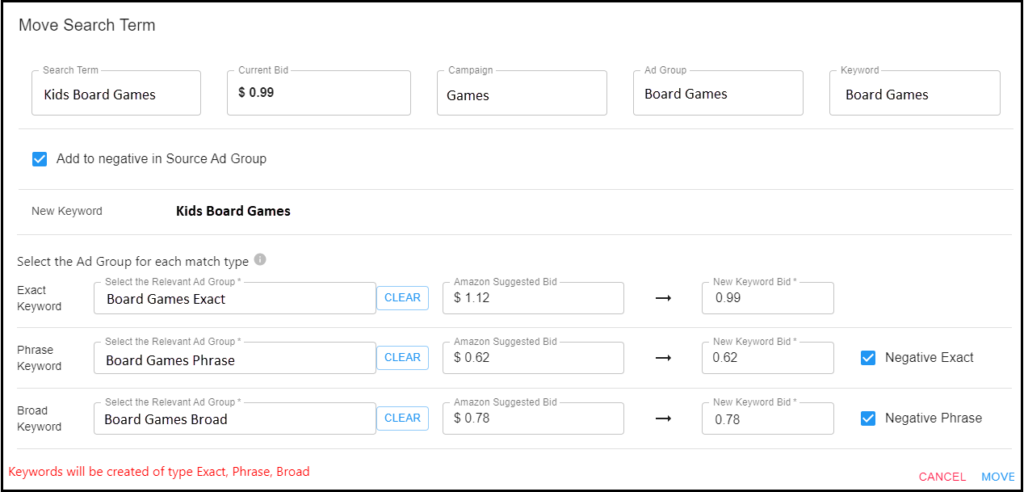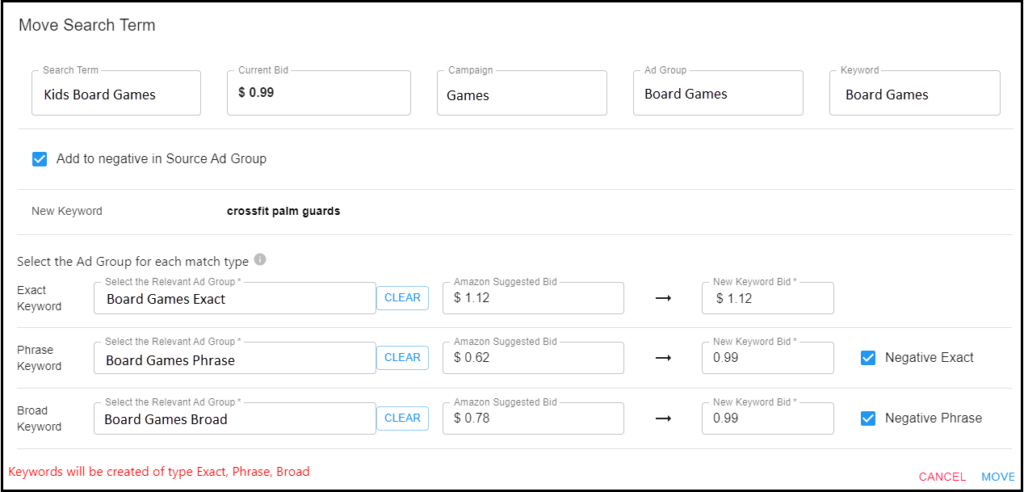🚀 Get Amazon reviews. Free!
This step by step guide will help you manage your Search Term Isolation recommendations and achieve better performance and an improved ACOS. Amazon advanced search optimisation done with the Amazon method are key to your success.
This step by step guide will help you manage your Search Term Isolation recommendations and achieve better performance and an improved ACOS.
“Search Term Isolation” is a methodology for managing search terms and is very important for your Amazon advanced search in the Amazon search engine.
You can watch a video about Search Term Isolation here
The new terms we create can come from keyword discovery tools. For example, tools and search engine optimization software such as Helium 10 or from our auto campaigns or from existing Broad and Phrase keywords. This is key for Amazon advanced search.
When relying on our own Auto, Broad and Phrase, you should follow the relevant recommendations to hit it in the Amazon search engine:
These are relevant search Amazon search terms that led to a sale and have an ACOS above our Target ACOS.
Recommended actions:

Search terms with sales are relevant search terms and are considered competitive.
Recommended actions:

Search terms that have not generated sales should be evaluated based on their clicks and spend. They should be turned off (added to negative) once they cross a certain threshold. The threshold varies based on different conditions:
Typical thresholds can be:
We should only add a search term to negative once we are convinced it is not relevant to our product or has wasted a significant portion of our budget.
Remember: Broad, Phrase, and Auto are used for keyword discovery and when a search term is using up the ad groups budget it is preventing or limiting the discovery of additional search terms thus we should either turn them off by adding them to negative or move them to an exact state and reduce their bid so we don’t completely “kill” them.